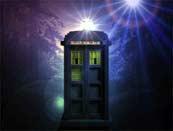
Amazing how precise we keep time today. Makes me wonder what year this really is when they talk about adding an hour after millions of years, etc. I had to save this article from the Associated Press.
Slowing Planet Affords Us an Extra Second By HUGO KUGIYA, AP National Writer
Fri Dec 30, 2:46 PM ET
If life is often a matter of split seconds --the train door that closes in your face, the chance encounter with the love of your life, the near-collision with an oncoming SUV -- then the universe is about to bestow upon us a generous gift: the leap second.
On Saturday, at exactly 7 p.m. Eastern Standard Time, one second will be added to our official record of time , Coordinated Universal Time, kept by a series of atomic clocks, housed in environmentally sealed vaults in about 80 timekeeping laboratories around the world and certified by the International Bureau of Weights and Measures in Paris.
The reason for the extra second is simple: The earth is slowing down. Since the days of Sir Isaac Newton, scientists have understood the time it takes for the earth to make a full rotation is getting longer. The gradual deceleration is caused by the gravitational pull of the moon. The same force that brings the tides is putting the brakes on the earth, albeit very slowly.
And because time is a function of planetary movement, our days are getting longer and, depending on how you look at it, time is slowing down. This discrepancy is something we have only recently become able to measure. That happened in 1958 with the advent of atomic clocks, which measure time using the resonant frequency of a cesium atom.
When a 24-hour day, as measured by the world's atomic clocks, becomes more than 9/10th's of a second shorter than a solar day, those in charge add the leap second.
Eventually the 24-hour day as we know it will become a few minutes longer, although it will take millions of years. After hundreds of millions of years, the day will grow an hour longer. The rotation of the earth and its orbital path around the sun (which is engaged in a perpetual gravitational tug of war with Jupiter) are inconsistent and always vary slightly.
"If we think of all the ways we're being jerked around the universe, we'd probably be hurling in the street," joked Geoff Chester, spokesman for the U.S. Naval Observatory in Washington D.C.
These cosmic forces matter little in the lifetime of any single person until, eventually, a day in the life gains one second.
Most of us will not pause to notice the extra second. But our machines will. Our computers, and mobile phones, and global positioning devices, will all rest for one second at the appointed time as they calibrate to Coordinated Universal Time.
"All this stuff depends on precise time," Chester said, "and the problem that you have if you don't get all the clocks synchronized when the leap second occurs ...you could have potentially interesting effects ... is that the Internet could stop working, cell phones could go out."
The official timekeeping devices of communication companies the world over, television stations, newspapers, indeed The Associated Press, also will hold their electronic breaths for one second. Perfect time is critical to our technological infrastructure, some of which operates at the speed of light. Measured this way, one second represents two-thirds the distance between the earth and moon.
For the average person, observing the leap second requires focus and effort. Most cannot feel the extra second of sleep to which we will be entitled. No ball will drop. The leap second will not be observed with a countdown broadcast live from Times Square.
But for those wishing to witness the event, the process is relatively simple and requires a stop watch and a common cell phone with a time display.
At the precise moment the display reads 6:59 p.m. (EST), start the stopwatch. When the display changes to 7:00, stop the watch. It should read 61 seconds.
There. Your extra second will have been spent.
No comments:
Post a Comment